Happy Wednesday! The Telegraph reports that to combat declining church attendance, the Vatican is turning to the social media accounts of “hot priests.” We’re pretty sure that there’s no way this goes well.
Quick Hits: Today’s Top Stories
- Millions of people in California, Alaska, Hawaii, Russia, and Japan evacuated coastal areas Tuesday after an 8.8-magnitude earthquake in the North Pacific Ocean near the Russian coast triggered tsunami warnings and advisories. Tsunami waves hit Hawaii Tuesday evening and then reached the West coast of the contiguous U.S. just after 1 a.m. Pacific time Wednesday. The tsunami warnings were eventually downgraded to advisories in U.S. waters after a few reports of flooded harbors, with waves reaching as high as 1.6 feet in California. But weather forecasters and emergency officials warned of dangerous currents and riptides as a result of the tsunami. The quake causing it was one of the most powerful on record.
- Police on Tuesday identified Shane Tamura, a 27-year-old from Las Vegas, as the gunman who opened fire in a Midtown Manhattan office building on Monday evening in an attack that killed four people, including an off-duty police officer. He used an M4 rifle and killed himself while still inside the building. Investigators said Tamura was targeting the offices of the National Football League, which are located in the building. Police found a three-page note in his pocket in which he claimed he had chronic traumatic encephalopathy because of football-related brain injuries, and he blamed the NFL for hiding the dangers of football from players.
- In a 50-49 vote Tuesday night, the Senate confirmed Emil Bove III as a judge on the 3rd U.S. Circuit Court of Appeals. Bove’s relationship to President Donald Trump and his recent stint in the Justice Department had called into question his fit for the confirmation. As principal associate deputy attorney general in the Justice Department, he ordered bribery charges against New York City Mayor Eric Adams to be dropped, and he was also one of Trump’s defense lawyers in his Manhattan criminal case.
- Thailand claimed Tuesday morning that Cambodia violated the ceasefire between the countries that began Monday, alleging that Cambodia continued to fire after the deal was reached. Despite Thailand’s complaint, senior commanders from both militaries met later Tuesday and reportedly agreed to stop fighting, improve communication, and ensure that the ceasefire held.
- Union Pacific, a major freight rail company, announced Tuesday that it would acquire Norfolk Southern, potentially creating the first transcontinental rail network. The $85 billion deal must be approved by the Surface Transportation Board, the federal rail regulator that will decide whether the acquisition will go too far in limiting competition. The two companies reportedly accounted for 43 percent of all rail freight activity last year.
- Kremlin spokesman Dmitri S. Peskov said Tuesday that the Russian government “took note” of Trump’s announcement Monday that he would “make a new deadline of about 10 or 12 days” for Russia to agree to a peace deal with Ukraine or face sanctions. Meanwhile, Russia’s oil exports have been slowing down. Russia stopped publicizing its oil production numbers after its invasion of Ukraine in 2022. However, Bloomberg reported that by every measure publicly recorded, the exports that could be subject to Trump’s threatened secondary sanctions are already struggling.
- U.K. Prime Minister Keir Starmer announced Tuesday that Britain would recognize Palestinian statehood by the upcoming September U.N. General Assembly if there is no ceasefire agreement by then. Starmer’s statement called on Israel to “take substantive steps to end the appalling situation in Gaza, agree to a ceasefire and commit to a long-term, sustainable peace.” Last week, France became the first G7 country to pledge it would recognize a Palestinian state.
- Chinese and U.S. officials wrapped up another round of trade talks in Stockholm on Tuesday, concluding with no set deal but agreeing to continue negotiations. Treasury Secretary Scott Bessent attended the talks and laid out a plan to extend a trade truce, which is waiting for approval from President Trump. This is the third meeting of top officials between the two countries since Trump raised tariffs in his second term.
- Millions of people in California, Alaska, Hawaii, Russia, and Japan evacuated coastal areas Tuesday after an 8.8-magnitude earthquake in the North Pacific Ocean near the Russian coast triggered tsunami warnings and advisories. Tsunami waves hit Hawaii Tuesday evening and then reached the West coast of the contiguous U.S. just after 1 a.m. Pacific time Wednesday. The tsunami warnings were eventually downgraded to advisories in U.S. waters after a few reports of flooded harbors, with waves reaching as high as 1.6 feet in California. But weather forecasters and emergency officials warned of dangerous currents and riptides as a result of the tsunami. The quake causing it was one of the most powerful on record.
- Police on Tuesday identified Shane Tamura, a 27-year-old from Las Vegas, as the gunman who opened fire in a Midtown Manhattan office building on Monday evening in an attack that killed four people, including an off-duty police officer. He used an M4 rifle and killed himself while still inside the building. Investigators said Tamura was targeting the offices of the National Football League, which are located in the building. Police found a three-page note in his pocket in which he claimed he had chronic traumatic encephalopathy because of football-related brain injuries, and he blamed the NFL for hiding the dangers of football from players.
- In a 50-49 vote Tuesday night, the Senate confirmed Emil Bove III as a judge on the 3rd U.S. Circuit Court of Appeals. Bove’s relationship to President Donald Trump and his recent stint in the Justice Department had called into question his fit for the confirmation. As principal associate deputy attorney general in the Justice Department, he ordered bribery charges against New York City Mayor Eric Adams to be dropped, and he was also one of Trump’s defense lawyers in his Manhattan criminal case.
- Thailand claimed Tuesday morning that Cambodia violated the ceasefire between the countries that began Monday, alleging that Cambodia continued to fire after the deal was reached. Despite Thailand’s complaint, senior commanders from both militaries met later Tuesday and reportedly agreed to stop fighting, improve communication, and ensure that the ceasefire held.
- Union Pacific, a major freight rail company, announced Tuesday that it would acquire Norfolk Southern, potentially creating the first transcontinental rail network. The $85 billion deal must be approved by the Surface Transportation Board, the federal rail regulator that will decide whether the acquisition will go too far in limiting competition. The two companies reportedly accounted for 43 percent of all rail freight activity last year.
- Kremlin spokesman Dmitri S. Peskov said Tuesday that the Russian government “took note” of Trump’s announcement Monday that he would “make a new deadline of about 10 or 12 days” for Russia to agree to a peace deal with Ukraine or face sanctions. Meanwhile, Russia’s oil exports have been slowing down. Russia stopped publicizing its oil production numbers after its invasion of Ukraine in 2022. However, Bloomberg reported that by every measure publicly recorded, the exports that could be subject to Trump’s threatened secondary sanctions are already struggling.
- U.K. Prime Minister Keir Starmer announced Tuesday that Britain would recognize Palestinian statehood by the upcoming September U.N. General Assembly if there is no ceasefire agreement by then. Starmer’s statement called on Israel to “take substantive steps to end the appalling situation in Gaza, agree to a ceasefire and commit to a long-term, sustainable peace.” Last week, France became the first G7 country to pledge it would recognize a Palestinian state.
- Chinese and U.S. officials wrapped up another round of trade talks in Stockholm on Tuesday, concluding with no set deal but agreeing to continue negotiations. Treasury Secretary Scott Bessent attended the talks and laid out a plan to extend a trade truce, which is waiting for approval from President Trump. This is the third meeting of top officials between the two countries since Trump raised tariffs in his second term.
A Southeast Asia Border Clash
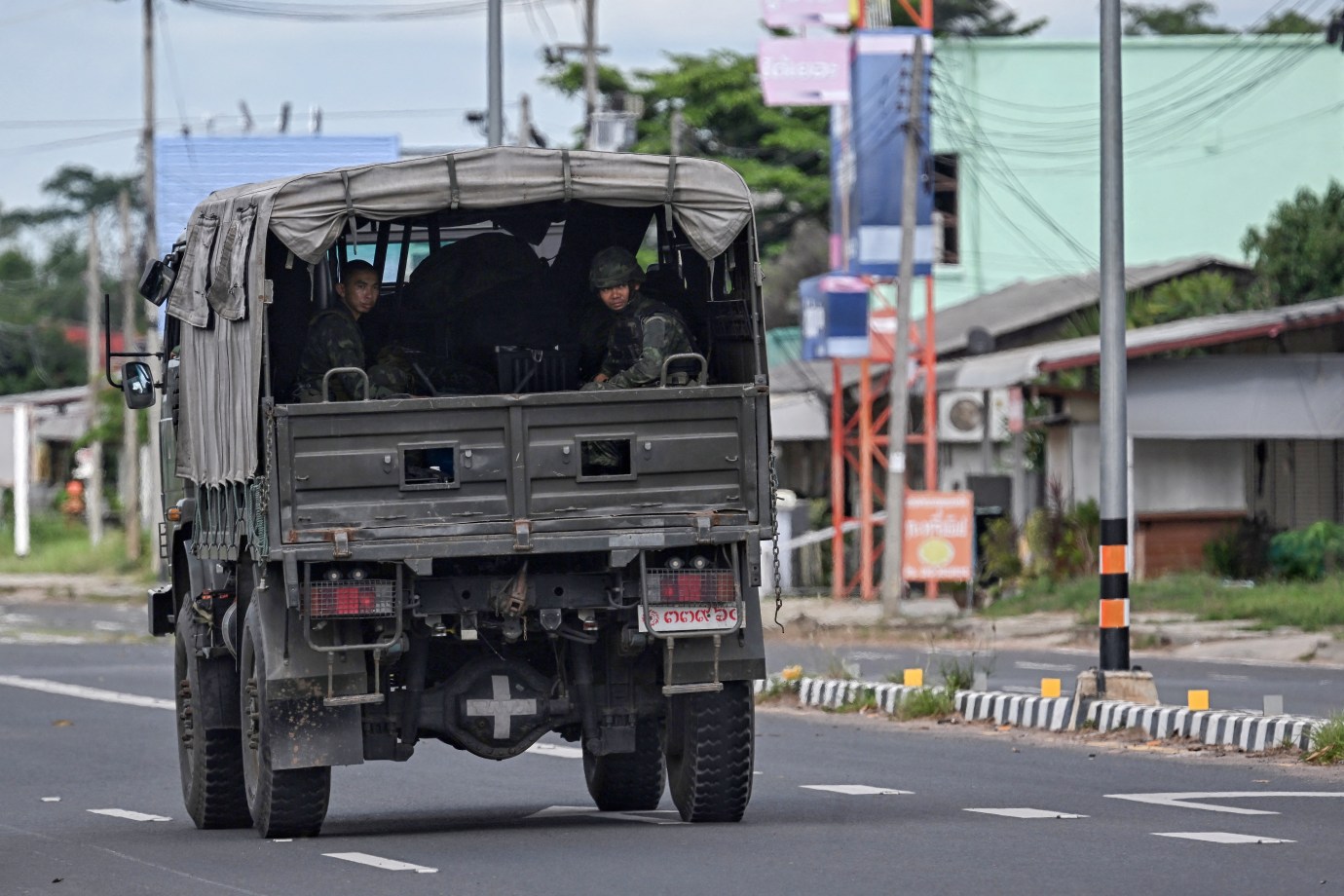
It took just hours for a fragile truce between Thailand and Cambodia, which took effect at midnight on Monday, to show signs of disintegrating.
After five days of cross-border attacks between the two Southeast Asian countries, the ceasefire sought to put an end to fighting that has killed at least 41 people and forced hundreds of thousands from their homes. On Tuesday, however, acting Thai Prime Minister Phumtham Wechayachai alleged that Cambodian forces had violated the agreement “by launching continuous and indiscriminate attacks on Thai territory,” adding that the Thai military was “compelled to respond decisively” to the breach.
As a non-paying reader, you are receiving a truncated version of The Morning Dispatch. You can read our full item in the members-only version of TMD.

Cambodia denied Bangkok’s accusation, and, at least for now, the neighboring countries have yet to return to the brink of an all-out war. But the ceasefire remains on shaky ground. As regional and global players from Beijing to Washington urge calm, many of the conflict’s key drivers—including longtime territorial disputes and domestic political instability—go largely unaddressed.
The two countries agreed to lay down arms early Monday morning, as Phumtham and his Cambodian counterpart, Hun Manet, met in Malaysia to affirm their commitment to mutual de-escalation. Malaysia, the current chair of the Association of Southeast Asian Nations, or ASEAN—a regional bloc of which Cambodia and Thailand are also members—played a key role in brokering the agreement. China and the U.S. were also involved in mediation efforts, with President Donald Trump threatening to halt trade talks with the warring countries if they failed to reach a truce.
And indeed, Trump wasted no time in taking credit for the deal on Monday. “I am pleased to announce that, after the involvement of President Donald J. Trump, both Countries have reached a CEASEFIRE and PEACE,” he wrote on Truth Social. “Congratulations to all! By ending this War, we have saved thousands of lives. I have instructed my Trade Team to restart negotiations on Trade.”
On Thursday, simmering tensions along the two countries’ 508-mile shared border erupted into their first major confrontation in more than a decade. Both sides claimed the other fired the first shots after fighting broke out near the 12th-century Hindu temple of Prasat Ta Muen Thom, which sits in a disputed area near their border. Thailand accused Cambodian soldiers of opening fire on its forces with heavy weapons, including rocket launchers, while Hun Sen—Cambodia’s former prime minister and de facto leader—said Thai soldiers “started this war” by closing the temple and shooting at Cambodian troops. Thai officials ordered the closure of border crossings and, over the course of several days, conducted airstrikes on Cambodia, which targeted Thai border communities with rocket fire.
The escalation followed several flare-ups in recent months. On May 28, Cambodian and Thai troops traded fire near a disputed part of the border, leading to the death of one Cambodian soldier. Both sides accused the other of initiating the fighting. Then, on July 16, three Thai soldiers were wounded after a landmine detonated in disputed territory, after which Bangkok accused Cambodia of laying new mines. One week later, a landmine near a different stretch of the border wounded five Thai troops.
The continuing clashes largely come down to overlapping territorial claims. The unresolved issue is often blamed on colonial France, which in 1907 mapped out Cambodia’s borders. Fueling the tense situation, the disputed pockets contain important religious and cultural landmarks, including Preah Vihear, an ancient Hindu temple and UNESCO World Heritage Site. In 1962, the International Court of Justice issued a decision recognizing Cambodian sovereignty over the temple, but Thailand continues to claim the surrounding area.
The conflict also has shades of great-power competition. Thailand, which is classified as one of Washington’s non-NATO major allies, has a close defense partnership with the United States. It deploys American-made weapons, including F-16 fighter jets, and is widely considered to have one of the strongest militaries in the region. In addition to boasting an advanced arsenal, the Thai military has the manpower advantage over its neighbor, with 360,000 active-duty personnel.
Both countries have ties to China, but Cambodia’s run deeper. The small country, which has fewer than 125,000 active armed forces personnel, is increasingly dependent on Beijing for its defense. China has funded and upgraded the main naval base in Cambodia, which the U.S. reportedly believes has, in turn, granted the Chinese military special privileges at the strategic base.
But domestic instability, fueled by the conflict, likely overshadows any great power considerations. In Thailand, in particular, the latest bout of fighting came amid a moment of political turmoil. Earlier this month, Thailand’s constitutional court suspended the country’s prime minister, Paetongtarn Shinawatra, over a leaked phone call with Hun Sen. During the conversation, Paetongtarn addressed the former Cambodian prime minister—a friend of her father, former Thai Prime Minister Thaksin Shinawatra—as “uncle,” a term of respect and deference in Asia. She also appeared to criticize one of her country’s own military commanders, leading to fierce backlash, including accusations of treason and anti-government protests.
Questions surrounding Hun Sen’s decision to leak the conversation remain. His own political standing in Cambodia, where he ceded power to his son in 2023 after ruling as an effective dictator, is undoubtedly boosted by picking fights with Bangkok. But the scandal—like the recent conflict—also contributed to the Thai military’s growing power over its civilian leadership, stoking fears of a coup in the putsch-prone country. Thailand has witnessed 22 coup attempts, 13 of them successful, over the last century.
Today, the military remains a strong player in the country’s domestic politics, and nationalist sentiment from its fight with Cambodia has boosted it further. Analysts fear this dynamic could incentivize the Thai military to cast aside the ceasefire.
Since the May 28 skirmishes—regardless of which side fired the first shots—the fighting has been “facilitated” and “ramped up” by the Thai armed forces, said Joshua Kurlantzick, a senior fellow for Southeast Asia and South Asia at the Council on Foreign Relations. “They have always been very powerful in Thai politics and have had numerous coups,” he told TMD. “And they are ramping up their power, using the conflict and other means to gain more power over civilians and eventually have a coup, possibly.”
The truce “addressed the buildup at the border and some of the displaced people, but in the long run, I do not expect it to hold,” he added. “There are important reasons on the Thai side why it wouldn’t be in the interest of the Thai military to have it hold.”
Today’s Must-Read

Aristotle Warned Us to Guard the Middle Class
Toeing the Company Line

Two Cheers for Behaving Badly

Why MAGA Is Growing Frustrated With Donald Trump
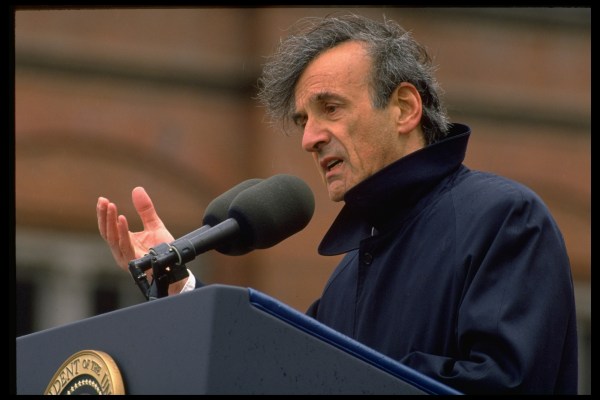
Candace Owens Makes Unsubstantiated Claims About Elie Wiesel and Robert Maxwell
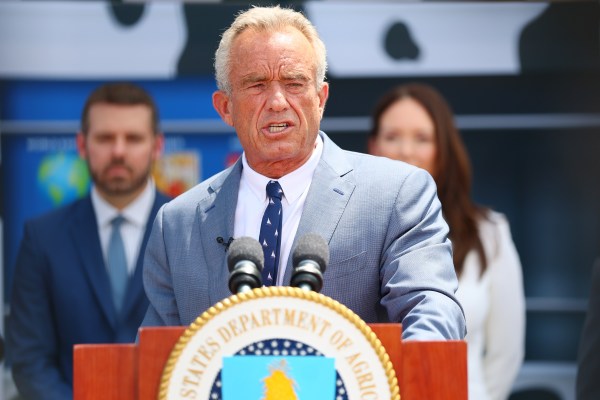
Assessing Claims About the WHO’s Updated Public Health Guidelines

Ask Me Anything, Pt. 1 | Interview: Sarah Isgur

Worth Your Time
- Welcome to Starbase, Texas, the newly incorporated town founded by Elon Musk (who else?), whose population is largely SpaceX employees. In Texas Monthly, Joe Pappalardo reported on how the new town is getting along (or not) with its neighbors: “Maria Pointer was stepping out of her shower when the floor beneath her feet started to shake, the vibration soon followed by a roaring blast. ‘At first I thought it was a bomb,’ she says. ‘I thought, “Iran has bombed SpaceX.”’ But foreign actors weren’t to blame for the towering fireball that had just erupted eight miles from Pointer’s home on Long Island, near Port Isabel. The accident was the result of the bursting of tanks that held 1,170 tons of cryogenically cooled liquid oxygen and 330 tons of methane propellant for SpaceX’s Starship, which was undergoing routine testing at the company’s South Texas launch facility. At 11:05 p.m. on June 18, a chain reaction took the 171-foot-tall spacecraft and its test stand down in a series of detonations. … To check on her guests, Pointer snatched up her phone and switched on her security camera’s feed. ‘It was chaos,’ she says. ‘There were kids screaming—you could hear them.’ She redirected the camera toward the test stand and saw the bright flashes of pressurized tanks continuing to explode, something she could not see or hear at a distance. ‘You could hear crackling and noise, and then all of a sudden these white blasts would go off, and the sound gets sucked right out of the microphone.’ It took about a half hour for the chaos to settle down. Soon after, her guests fled, unharmed. They later left her Airbnb a four-star (out of five) review.”
- For Unherd, Joel Kotkin wrote about how the American South is quickly becoming America’s most economically dynamic and forward-looking region, overtaking the supposedly commercial North: “The South is capturing cutting-edge industries, drawing in capital as well as a swelling tide of migrants from within the country and abroad. Overall, the southeast quadrant of the country is now the most dominant economic region, and since 2018 has produced almost all the country’s population growth and half its new jobs, according to the Texas Stock Exchange. … Nicole Chambers, the Texas Stock Exchange’s global managing director, only smiles when I bring up the fact that New York seems poised to elect a socialist as mayor. She sees the new exchange as providing a more business-friendly environment for both small investors and companies. ‘We want to be a Wall Street for all,’ the San Diego native suggests. This is part of the whole ‘y’all street’ meme, which sees Texas capitalism as a more open, even populist alternative to more hierarchical Wall Street or Silicon Valley. Another strength: Texas now has more finance professionals than New York. As Soichiro Honda, the founder of Honda, once told me, ‘more important than gold or diamonds are people.’ For much of its history, the South failed to attract people who could build a stronger, more advanced economy. Today’s reversal is proof that there are few inevitabilities in the political economy.”
Presented Without Comment
ABC News: “We’re Not Shielding Anything,” Vance Says of Epstein Files
Also Presented Without Comment
New York Times: ‘Come With Me, Chuck E.’: Mouse Arrested for Credit Card Fraud
In the Zeitgeist
For you horror movie buffs out there, Dave Franco and Alison Brie (who are married in real life) are starring in the comedy-horror Together, out tomorrow to rave reviews from critics. Let’s just say it looks like their relationship reaches new levels of closeness.
Let Us Know
What do you think about the South becoming an economic dynamo? If you live in the South, have you noticed change around you?


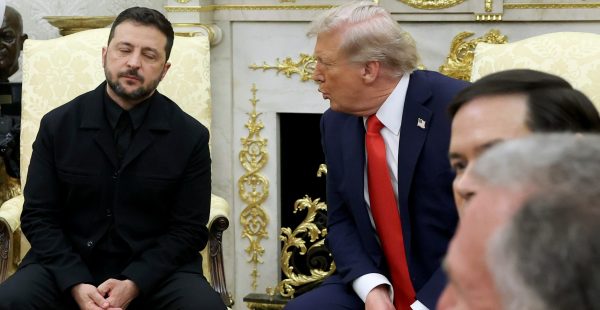
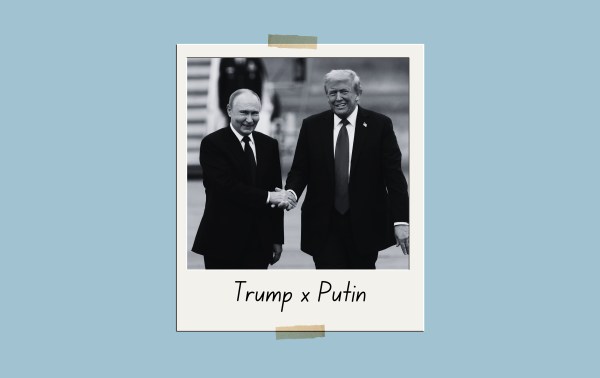

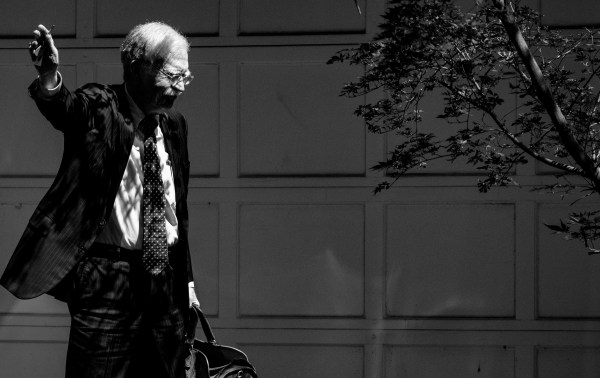



Please note that we at The Dispatch hold ourselves, our work, and our commenters to a higher standard than other places on the internet. We welcome comments that foster genuine debate or discussion—including comments critical of us or our work—but responses that include ad hominem attacks on fellow Dispatch members or are intended to stoke fear and anger may be moderated.
With your membership, you only have the ability to comment on The Morning Dispatch articles. Consider upgrading to join the conversation everywhere.